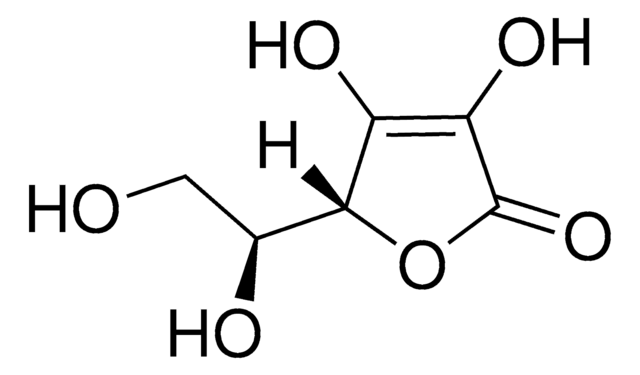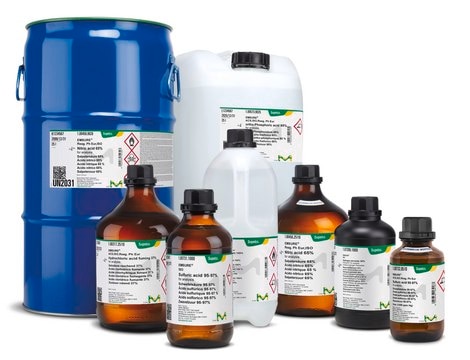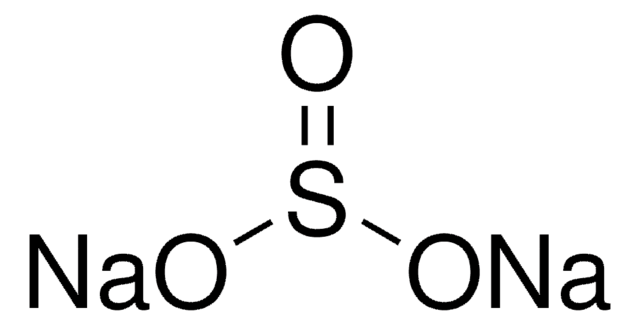A2218
L-Ascorbic acid
meets USP testing specifications
Synonym(s):
L-Threoascorbic acid, Antiscorbutic factor, Vitamin C
About This Item
Recommended Products
biological source
synthetic
Quality Level
agency
USP/NF
meets USP testing specifications
assay
99.0-100.5%
form
solid
technique(s)
cell culture | mammalian: suitable
pH
1.0-2.5 (25 °C, 176 g/L in water)
mp
190-194 °C (dec.)
solubility
water: soluble 176 g/L at 20 °C
application(s)
pharmaceutical (small molecule)
SMILES string
OC([C@]([C@@H](O)CO)([H])O1)=C(O)C1=O
InChI
1S/C6H8O6/c7-1-2(8)5-3(9)4(10)6(11)12-5/h2,5,7-10H,1H2/t2-,5+/m0/s1
InChI key
CIWBSHSKHKDKBQ-JLAZNSOCSA-N
Gene Information
human ... SLC23A2(9962)
Looking for similar products? Visit Product Comparison Guide
Related Categories
General description
Application
Biochem/physiol Actions
wgk_germany
WGK 1
flash_point_f
Not applicable
flash_point_c
Not applicable
ppe
Eyeshields, Gloves, type N95 (US)
Certificates of Analysis (COA)
Search for Certificates of Analysis (COA) by entering the products Lot/Batch Number. Lot and Batch Numbers can be found on a product’s label following the words ‘Lot’ or ‘Batch’.
Already Own This Product?
Find documentation for the products that you have recently purchased in the Document Library.
Customers Also Viewed
Our team of scientists has experience in all areas of research including Life Science, Material Science, Chemical Synthesis, Chromatography, Analytical and many others.
Contact Technical Service


